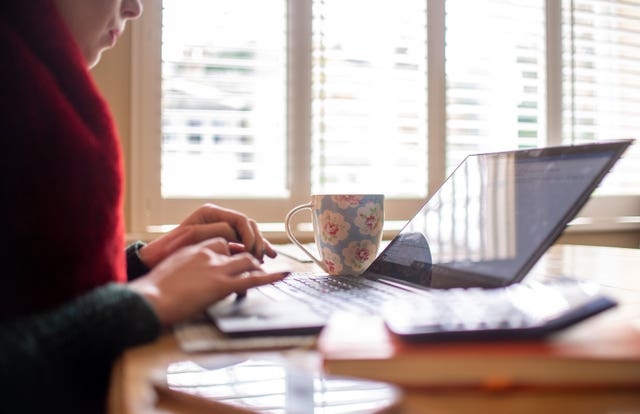Life in lockdown: How to look after your mental health
A doctor shares his tips for taking care of your mental wellbeing while living under pandemic restrictions.

Nearly half of adults (48%) are more worried during the current lockdown than they were last March, according to new research.
“To be honest, I was quite surprised – I thought it would be much, much higher,” says Dr Max Pemberton of the Public Health England results, unveiled as part of the Every Mind Matters campaign.
“I haven’t come across anyone who hasn’t struggled to some extent during the pandemic.”
The campaign aims to empower people to help improve their wellbeing with the launch of a website full of advice and support.
“It’s not simply about treating mental illness.
“Before we get to that stage, it’s more about supporting people’s people’s mental health,” says Dr Pemberton.
Here are his top tips for boosting mental wellbeing during lockdown and beyond:
1. Set a daily routine
“Something I’ve noticed myself, and that I’ve talked to a lot of my patients about, is the loss of structure and routine that lots of people have experienced,” says Dr Pemberton, particularly for people who have lost their jobs.
“We know that actually people are quite resilient, provided there is a rhythm or routine in their life, so it’s about positively thinking, ‘OK, what can I do now?
“What sort of things can I put into my day to give me a sense of structure and routine?
“And consciously doing that.”
He suggests drawing up your own timetable for each day or week and sticking to it.
2. Identify bad habits
Using an example from his own life, Dr Pemberton says that when he was first deployed on a Covid ward he would come home and watch the news continuously in the evening.
“After a couple of days of this, I realised I was actually getting really anxious, and it was because of the constant rolling news,” he says.
Noticing the bad habit, he nipped it in the bud, and encourages others to do the same.
“I allowed myself to watch one ‘chunk’ of news, then I turned the television off or put something else on, or put some music on.
“And almost immediately my anxiety levels started reducing.”
3. Remember that loneliness is normal
“I actually think one of the hardest things out of everything to do with the pandemic, is this isolation people have experienced,” says Dr Pemberton.
“The first thing is to think, actually, ‘Well done, you’re normal’.
“Sometimes just hearing that and realising that in itself, can make you feel connected to other people, because actually what you’re experiencing is a normal thing, (and) everybody has been there.”
4. Seek out support services
In terms of practical advice for dealing with loneliness, Dr Pemberton advises reaching out to one of the organisations providing help for people who may be living alone.
“There’s lots of help out there for people that are feeling lonely – telephone befriending services, online (services).”
He suggests visiting the Every Mind Matters website for a range of resources.
5. Divide childcare where possible

While many people have been feeling more isolated, others are struggling with being cooped up at home with the kids for long periods of time.
“Some people are feeling overwhelmed or claustrophobic,” says Dr Pemberton.
He suggests “trying to split up the childcare very consciously between you and your partner – if you’re living with a partner.
“(Take) turns like that, to support one another, because it is important that you get time on your own.”
6. Ask for alone time if you need it
Whether you have children at home or not, if you are living with a partner or housemates, you might be wishing you had more time alone.
“We may well be gregarious animals, but equally, we also need a bit of ‘me’ time,” says Dr Pemberton, suggesting you might take it in turns to do the shopping or use your exercise time as ‘me’ time.
“I think lots of people have forgotten we are allowed to exercise, you are allowed to leave the house, you don’t have to be locked down 24 hours a day.”
7. Know your rights

If money worries are affecting your mental health, it is worth finding out whether you’re entitled to financial support.
“My concern is that a lot of people, maybe it’s never even occurred to them, about welfare or housing benefit,” says Dr Pemberton.
“On the website we’ve got a whole section on things like employment rights, housing rights, and welfare rights, signposting people to services, charities and so on that can help advise them.”
For more information visit Every Mind Matters for further details.





